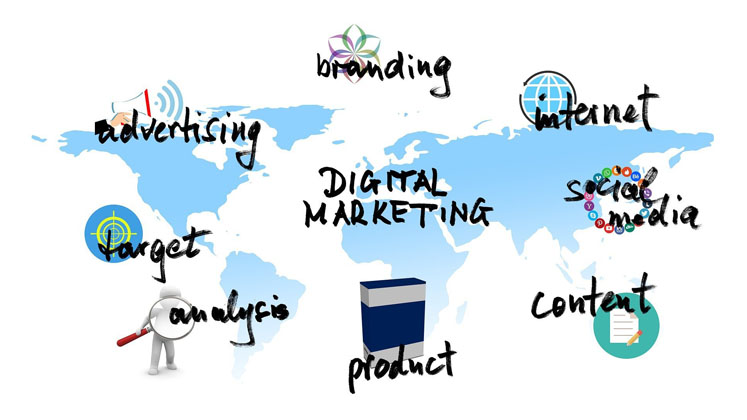India and the world are in the age of digital transformation, where social media has become mandatory and the most influential and important virtual space for businesses – whether it is a large corporation or a small mom-and-pop store or an MSME. Social media has not only changed the way people do business but it has enabled them to reach and connect with their target audience in a better way than ever before; it provides a massive audience to these businesses to connect to, to establish brand visibility, acceptance, while also helping them retain their customer base.
With the online users accounting for almost 59 per cent of the world’s population, no industry is willing to miss out on their chance of marketing on these digital platforms. Talking about the significance of social media presence for MSMEs, Dhanendra Kumar, Former Chairman, Competition Commission of India, says, “The advantage of using social media is that it is instant, is a two-way communication, has a wider reach and the cost of leveraging this medium is almost negligible. Social media advertising is extremely important and relevant for MSMEs, especially given their limited budget for advertising and the need to connect with their clients/customers. I strongly recommend MSMEs to go for social media marketing.”
While more and more SMEs are becoming aware of the importance of social networks, they are still skeptical about its benefits for businesses considering the size of their business (which is mostly small with lesser turnover than most established brands using social media), the costs involved in leveraging the medium, the lack of awareness and knowledge about using social media in the correct manner, the scepticism around connecting with the right audience, etc.
According to Zinnov Consulting, out of the 75 million MSMEs based in India, 16-18 million have a social media presence, an online listing, or a website. Social media marketing plays an important role, as long as companies onboard good management and professionals, helping in the brand positioning and differentiation.
Why social media though?
A powerful tool for businesses used wisely can help SMEs boost brand visibility, encourage dialogue with target audience, increase sales and alliances, reduce marketing as well as market research cost, retain existing customers, among others. According to FICCI-Grand Thornton report, a product launch on social media has an upper hand over a traditional product launch in terms of number of participants attending events online, efficient communication in the form of blogs, cost-effective measure besides eliminating travel needs. Anuj Mundhra, Chairman and MD of Nandani Creation Limited (which operates JaipuriKurti.comand announced its IPO in 2016 and later in September 2021, migrated from NSE Emerge to the Main Board of NSE), agrees as he says, “Our first-hand experience tells us that social media gives a business that much needed recognition. You can attract the online shoppers and at the same time make your name known to the offline shoppers. Our sales have perked up during the years and we were able to maintain our performance during the pandemic situation because of the social media connect.” Nandani Creation’s Jaipur Kurti has a following of 98,900 followers on Instagram and 39,095 hits on Facebook, which it uses to launch its new collection, connect with the audience and even announce sale seasons, etc.
With the evolving search engine algorithm, SMB owners are on their toes and ensure that they are constantly updated with relevant and current ways of reaching out to their client base and thereby prevent being devalued in search results.
Social media platforms like Facebook, Twitter, LinkedIn, etc., are even helping enterprises to crowdsource ideas, get feedback and get insights from success of fellow digital businesses.
This, now, is not only true for B2C SMEs but also for B2B enterprises. Anuj Kejriwal, CEO & MD, ANAROCK Retail, avers, “In today’s age and era, social media marketing strategies are essential for both businesses – B2B or B2C. Typically, B2B clients/customers need information which deals with the technical aspects of the product/service. In fact, to design a digital marketing strategy, MSMEs must assess the kind of business model a company has. And thereafter consumers/clients can be approached in an impactful way which would eventually make their business flourish.” For instance, a B2B MSME which is an enabler platform will showcase information via posts packed with the technical aspects of the product/service in order for another brand to come onboard, whereas a B2C brand would market its products, its selling points, etc., to attract more customers, in a more colloquial and entertaining manner.
Overall, social media platforms will not only help MSMEs to sail through exigencies like COVID-19 but also help them stay on top of the game. Businesses and even consumers want to buy from companies which have established credibility and which seem to be totally transparent in their advertising campaigns and social media ensures this. “Social media platforms will help MSMEs understand what’s trending, which regions are looking for what kind of products, what kind of people are engaging more and will ultimately help sell better and make profits,” concludes Dhanendra Kumar.









